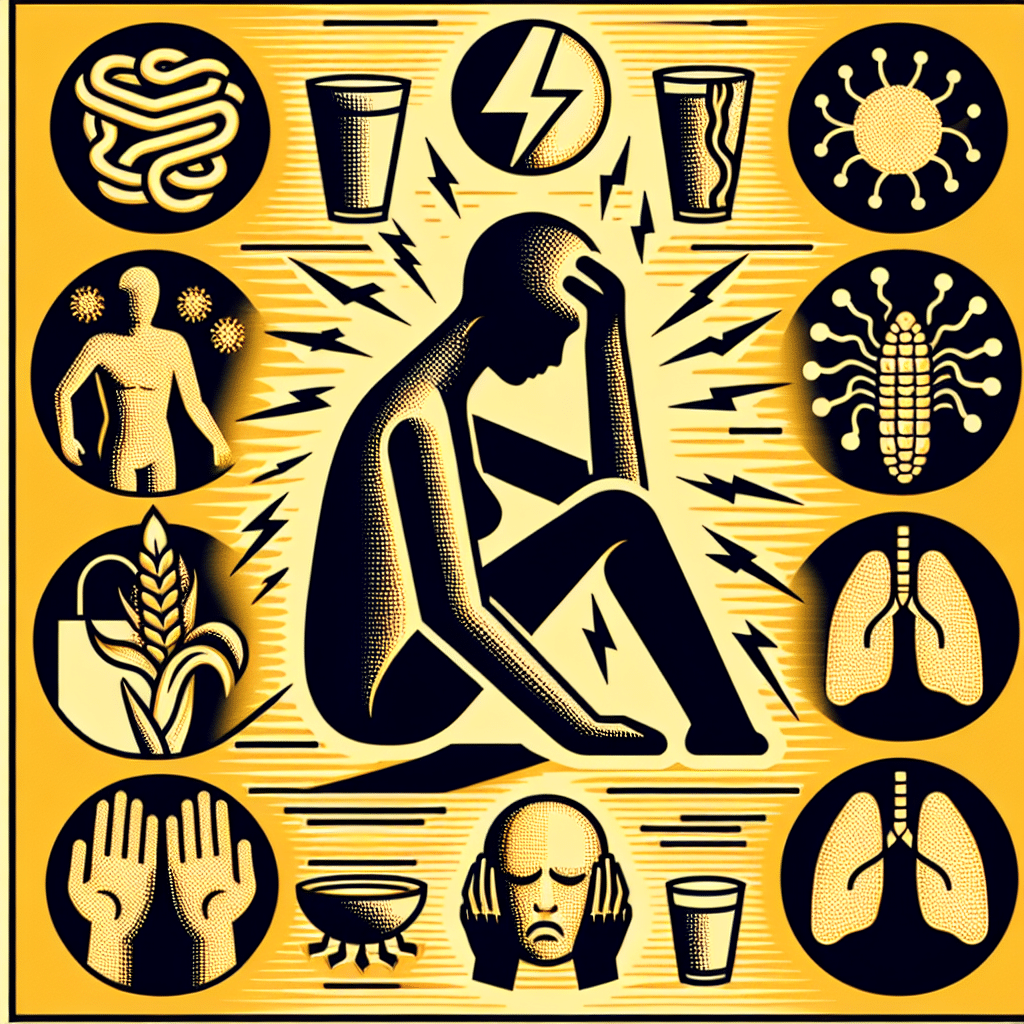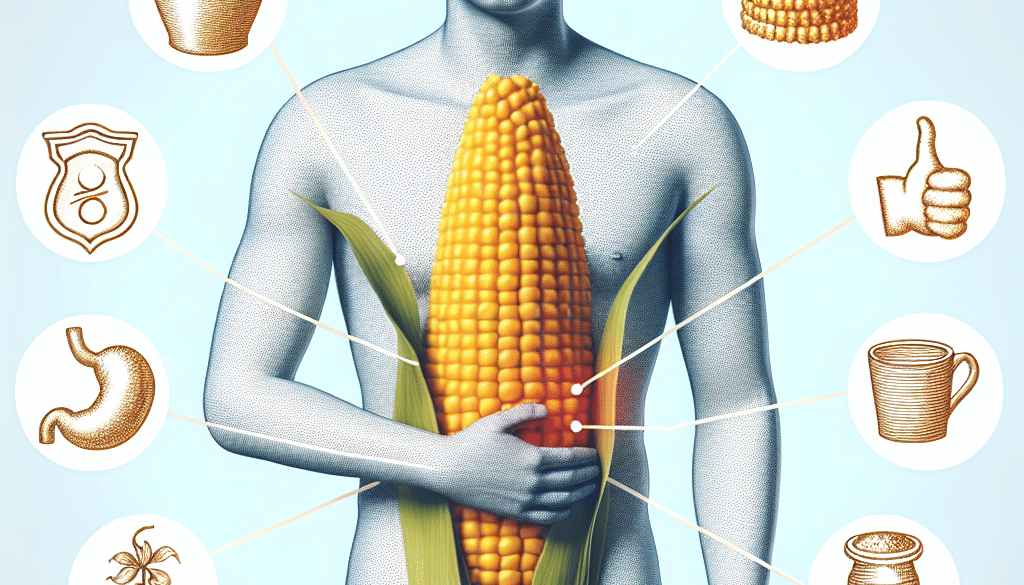What Are The Side Effects Of Hydrolyzed Corn Protein?
-
Table of Contents
- Hydrolyzed Corn Protein Side Effects: What You Need to Know
- Understanding Hydrolyzed Corn Protein
- Potential Allergic Reactions
- Monosodium Glutamate (MSG) Sensitivity
- Gastrointestinal Issues
- Hidden Sources of Gluten
- Nutritional Considerations
- Case Studies and Statistics
- Conclusion: Balancing Benefits and Side Effects
- Explore ETprotein’s High-Quality Protein Products
Hydrolyzed Corn Protein Side Effects: What You Need to Know

Hydrolyzed corn protein is a common ingredient found in various food products, often used as a flavor enhancer or to boost the protein content. While it offers certain benefits, like any other food additive, it may also come with potential side effects. This article delves into the side effects of hydrolyzed corn protein, providing insights and information to help consumers make informed dietary choices.
Understanding Hydrolyzed Corn Protein
Before we explore the side effects, it’s important to understand what hydrolyzed corn protein is. It’s a product derived from corn that has undergone hydrolysis, a chemical process that breaks down proteins into smaller peptides and amino acids. This process makes the protein easier to digest and can enhance the flavor profile of foods.
Potential Allergic Reactions
One of the primary concerns with hydrolyzed corn protein is the potential for allergic reactions. Although corn allergies are less common than other food allergies, they can still occur. Symptoms of a corn allergy may include:
- Hives or skin rash
- Nausea or vomiting
- Stomach cramps
- Diarrhea
- Wheezing or difficulty breathing
- Anaphylaxis in severe cases
Individuals with a known corn allergy should avoid products containing hydrolyzed corn protein to prevent these reactions.
Monosodium Glutamate (MSG) Sensitivity
Hydrolyzed corn protein can contain free glutamic acid, which is similar to monosodium glutamate (MSG), a flavor enhancer that some individuals are sensitive to. While the FDA considers MSG to be generally recognized as safe (GRAS), some people may experience symptoms such as:
- Headaches
- Flushing
- Sweating
- Numbness or tingling
- Chest pain
- Nausea
These symptoms are often referred to as “MSG symptom complex” or “Chinese restaurant syndrome.” If you experience such symptoms, it may be prudent to limit or avoid foods containing hydrolyzed corn protein.
Gastrointestinal Issues
Some individuals may experience gastrointestinal discomfort after consuming hydrolyzed corn protein. This can include symptoms like:
- Bloating
- Gas
- Stomach pain
- Changes in bowel habits
These symptoms are typically mild and temporary. However, if they persist, it may be necessary to consult a healthcare professional.
Hidden Sources of Gluten
For those with celiac disease or gluten sensitivity, it’s important to note that while corn is naturally gluten-free, cross-contamination can occur during processing. Hydrolyzed corn protein may sometimes be processed in facilities that also handle wheat, barley, or rye, leading to trace amounts of gluten in the final product. Always check for a gluten-free label if you need to avoid gluten.
Nutritional Considerations
While hydrolyzed corn protein can enhance the flavor and protein content of foods, it’s not a complete protein source. It lacks certain essential amino acids that the body cannot produce on its own. Therefore, it should not be relied upon as the sole source of dietary protein.
Case Studies and Statistics
Research on the side effects of hydrolyzed corn protein is limited, but some case studies and anecdotal reports suggest that certain individuals may be more susceptible to its adverse effects. For example, a study published in the Journal of Nutrition and Food Sciences reported that some individuals experienced MSG-like symptoms after consuming hydrolyzed vegetable protein, which can be similar to hydrolyzed corn protein.
Statistics on the prevalence of corn allergies and MSG sensitivity are also scarce. However, it’s estimated that less than 1% of the US population has a true corn allergy, according to the American College of Allergy, Asthma & Immunology.
Conclusion: Balancing Benefits and Side Effects
In conclusion, while hydrolyzed corn protein is generally safe for most people, it can cause side effects in those with corn allergies, MSG sensitivity, or gluten intolerance. It’s important to be aware of these potential issues and to read food labels carefully, especially if you have known sensitivities or dietary restrictions.
The key takeaways from this article are:
- Hydrolyzed corn protein can cause allergic reactions in sensitive individuals.
- It may contain free glutamic acid, which can lead to MSG-like symptoms in some people.
- Gastrointestinal discomfort is a possible side effect.
- Those with celiac disease or gluten sensitivity should be cautious of potential cross-contamination.
- Hydrolyzed corn protein is not a complete protein source and should be consumed as part of a balanced diet.
Explore ETprotein’s High-Quality Protein Products
If you’re looking for alternative protein sources that are high-quality and cater to various dietary needs, ETprotein offers a range of organic bulk vegan proteins. Their products, including organic rice protein, pea protein, and various seed proteins, are characterized by a neutral taste, non-GMO, and allergen-free attributes. With L-(+)-Ergothioneine purity over 98%, ETprotein’s offerings are suitable for a wide array of industries, from nutraceuticals to food and beverage.
ETprotein is a trusted supplier for leading global brands, ensuring that you receive only the best in protein supplementation. To learn more about their products or to request a sample, contact ETprotein and email sales(at)ETprotein.com today.
About ETprotein:
ETprotein, a reputable protein and L-(+)-Ergothioneine (EGT) Chinese factory manufacturer and supplier, is renowned for producing, stocking, exporting, and delivering the highest quality organic bulk vegan proteins and L-(+)-Ergothioneine. They include Organic rice protein, clear rice protein, pea protein, clear pea protein, watermelon seed protein, pumpkin seed protein, sunflower seed protein, mung bean protein, peanut protein, and L-(+)-Ergothioneine EGT Pharmaceutical grade, L-(+)-Ergothioneine EGT food grade, L-(+)-Ergothioneine EGT cosmetic grade, L-(+)-Ergothioneine EGT reference grade and L-(+)-Ergothioneine EGT standard. Their offerings, characterized by a neutral taste, non-GMO, allergen-free attributes, with L-(+)-Ergothioneine purity over 98%, 99%, cater to a diverse range of industries. They serve nutraceutical, pharmaceutical, cosmeceutical, veterinary, as well as food and beverage finished product distributors, traders, and manufacturers across Europe, USA, Canada, Australia, Thailand, Japan, Korea, Brazil, and Chile, among others.
ETprotein specialization includes exporting and delivering tailor-made protein powder and finished nutritional supplements. Their extensive product range covers sectors like Food and Beverage, Sports Nutrition, Weight Management, Dietary Supplements, Health and Wellness Products, and Infant Formula, ensuring comprehensive solutions to meet all your protein needs.
As a trusted company by leading global food and beverage brands and Fortune 500 companies, ETprotein reinforces China’s reputation in the global arena. For more information or to sample their products, please contact them and email sales(at)ETprotein.com today.














